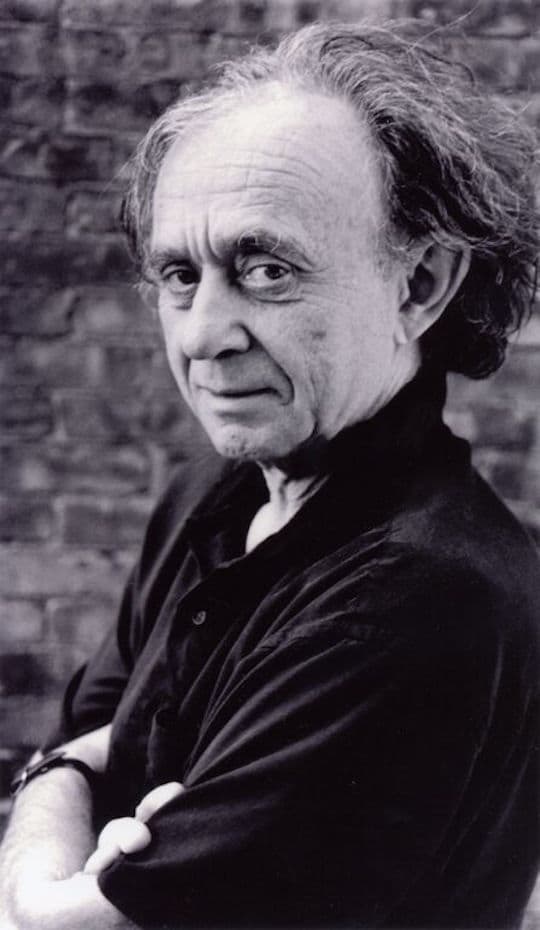Advertisement
Frederick Wiseman On His Latest Documentary, 'In Jackson Heights'

Cambridge has quietly become an incubator to more than just hi-tech, intellectualized liberalism and life sciences. Slowly but surely over the past few decades the left bank has become a nurturing rook for documentary filmmakers.
It's home to such notables as Academy Award-winners Errol Morris ("Fog of War") and Margaret Lazarus ("Defending Our Lives"). Oscar-nominated Joshua Oppenheimer ("The Act of Killing" and "The Look of Silence") attended Harvard and longtime resident Ross McElwee made an indelible mark in 1985 with his critically acclaimed autobiographical sojourn, "Sherman's March," too, but predating all that undeniable talent and vision, and most prolific, looms Frederick Wiseman.
The embodiment of the cinéma vérité, Wiseman, at the spry age of 85 (call it 86) is now churning out his 40th cinematic essay, "In Jackson Heights," which begins a special engagement at the Museum of Fine Arts starting Wednesday, Nov. 18, and runs through the end of the month.

The film, an intimate look at the diverse culture and politics of the Queens district, rounds out the director's community trilogy, which includes "Aspen" (1991) and "Belfast, Maine" (1999). "It's a trilogy in retrospect," Wiseman says of the labeling during our interview, "like my institutional series was." That series which includes "High School" (1968) and "Hospital" (1970), began with Wiseman's seminal and controversial first film, "Titicut Follies" (1967) about the Bridgewater State Hospital for the Criminally Insane, which, because of its graphic nature, was banned from being shown in Massachusetts until the early 1990s.
The loose conceptual aim of Wiseman's community series has been to observe large and diverse communities in relatively tight confines ("Aspen" may be a wide open space, but Wiseman was drawn by the restrictive interaction between the very rich and the poor who service them). "Jackson Heights," Wiseman points out, "has over 130,000 people in a 300 acre area." The film informs us right off the bat that over 160 languages are spoken. A quick sweep of the street displays international colors all in a row and the juxtaposition of a gathering at the Jewish Center, Arabic lessons for children and prayer at a Hindu temple cements the manifold portrait, though it's a piquant joy to witness Councilman Daniel Dromm as he tries to envelop all in his opening welcome, which becomes arguably longer than his speech. Most humorous however, is the sign-up session for want-to-be cab drivers.
"I wanted to do a film on immigrants coming to the country now," Wiseman says of the project, "a friend took me around Jackson Heights and the cultural diversity just jumped out at me, all these fruits from around the world in the bins on the street and the signs in different languages, so without knowing much more about it, I just decided to do it."
Advertisement

The irony in choosing Jackson Heights — and the irony of the Heights itself and its newly branded diversity tag — is that it was so named not for its elevation, but its designated exclusivity. Jews and blacks were not allowed to settle in the Heights until the mid-20th century when the Immigration and Fair Housing acts helped alter the residential landscape, though gays working in the Broadway theater industry had quietly begun to settle the area in the '30s.
And it's to the LGBT groups in the Heights that Wiseman's lens (framed crisply by cameraman and longtime collaborator John Davey) gets most starkly drawn, most notably the gay seniors’ support group called SAGE, parades protesting the specter of gay bashing and hate, and transgendered Latinos concerned about security and discrimination at clubs.
For those unfamiliar with Wiseman's style, it's sheer fly-on-the-wall observation, there is no interviewing or interjecting as one might expect with a Morgan Spurlock ("Super Size Me") or the ever polemic Michael Moore ("Fahrenheit 9/11" and "Roger & Me"). The term cinéma vérité ("truthful camera") is regularly applied to Wiseman, but the former instructor of law (at Boston University) shuns it as "a pompous French term" and redirects to his vision of filmmaking: "I make movies on unstaged events and edit them into dramatic narratives."
In that simple tact Wiseman's goal is to get at complexity of the human condition and its earnest truth. When asked about reality TV and the works of Moore and Spurlock, Wiseman notes, "I never really watch TV and I don't watch any of those movies. What interests me are movies that deal with the complexity of the world and that don't simplify it for ideological or commercial gain." When Wiseman has the time to sit down and take in a movie, he's more likely to revisit the classic works of Fellini, Godard or the Marx brothers, than to trek to the cineplex and take in the latest blockbuster.
The subtlety one notices in a Wiseman film — after you've taken in a few of them — is the director's attentive ear for human rhythms. They're obvious and overt in works like "La Danse" (2009) and "Boxing Gym" (2010) where cadence is at the fore of his subject, but also in films like "In Jackson Heights," where that Hindu prayer, the fluent ebb and flow in the Arabic school lesson, even the rhythmic murmurs and whirs inside a laundromat along with the many snippets of cultural performances, create an indelible aural bouquet that deepens the viewer's immersion in both palpable and visceral ways.
Wiseman, a long time connoisseur of performance arts, has made several films about ballet ("Ballet" and "Crazy Horse," along with "La Danse"), but feels that classical ballet lacks in depth. "It's always about relationships." Wiseman notes, "I've always wondered if there could be something more complex and contemporary to it."
Not one to sit idle, Wiseman is currently working with a choreographer in New York to stage a ballet version of "Titicut Follies." The notion takes a while to digest, but it's a piquant enticement once it settles. A segment of the act was performed earlier this year at the Toronto International Film Festival and was well received.
Beyond "In Jackson Heights" and the ballet, Wiseman sees more films. "It keeps me off the street," he intones with his signature wry style. When asked of doing a narrative feature, the documentarian laments, revealing that he has written a screen adaptation of an Anne Tyler story but has long since abandoned the idea of making it. "Doing fiction with Hollywood is a pain in the ass. It requires a lot of money and takes years."
Still, Wiseman, always on the move, cranks out nearly a film a year. His process is familiar and well proven, but he's also had to change with the times. Up until five years ago, Wiseman still shot and edited on film (strips of film used to hang from his Cambridge studio like fly strips in a barn), but has since been forced to make the switch to digital, which he admits has its upswings.

For "In Jackson Heights," Wiseman, long-funded by public TV and the Ford Foundation, needed additional funds and launched a Kickstarter campaign to finish the editing process. Though the campaign wasn't a success — and Wiseman prefers not to talk about it — "In Jackson Heights" made it out of the can (or, off the disk) and onto the screen regardless. And given the swirl of anti-immigration rhetoric mounting throughout the GOP presidential race and further debate raised by the recent tragedy in Paris, the film’s truths about immigrants and multiethnic melting while maintaining roots and tradition, couldn't be more illuminating or germane.
Tom Meek is a writer living in Cambridge. His reviews, essays, short stories and articles have appeared in The Boston Phoenix, Paste Magazine, The Rumpus, Thieves Jargon, Charleston City Paper and SLAB literary journal. Tom is also a member of the Boston Society of Film Critics and rides his bike everywhere. You can follow Tom on Twitter at @TBMeek3 and read more at TBMeek3.wordpress.com.
